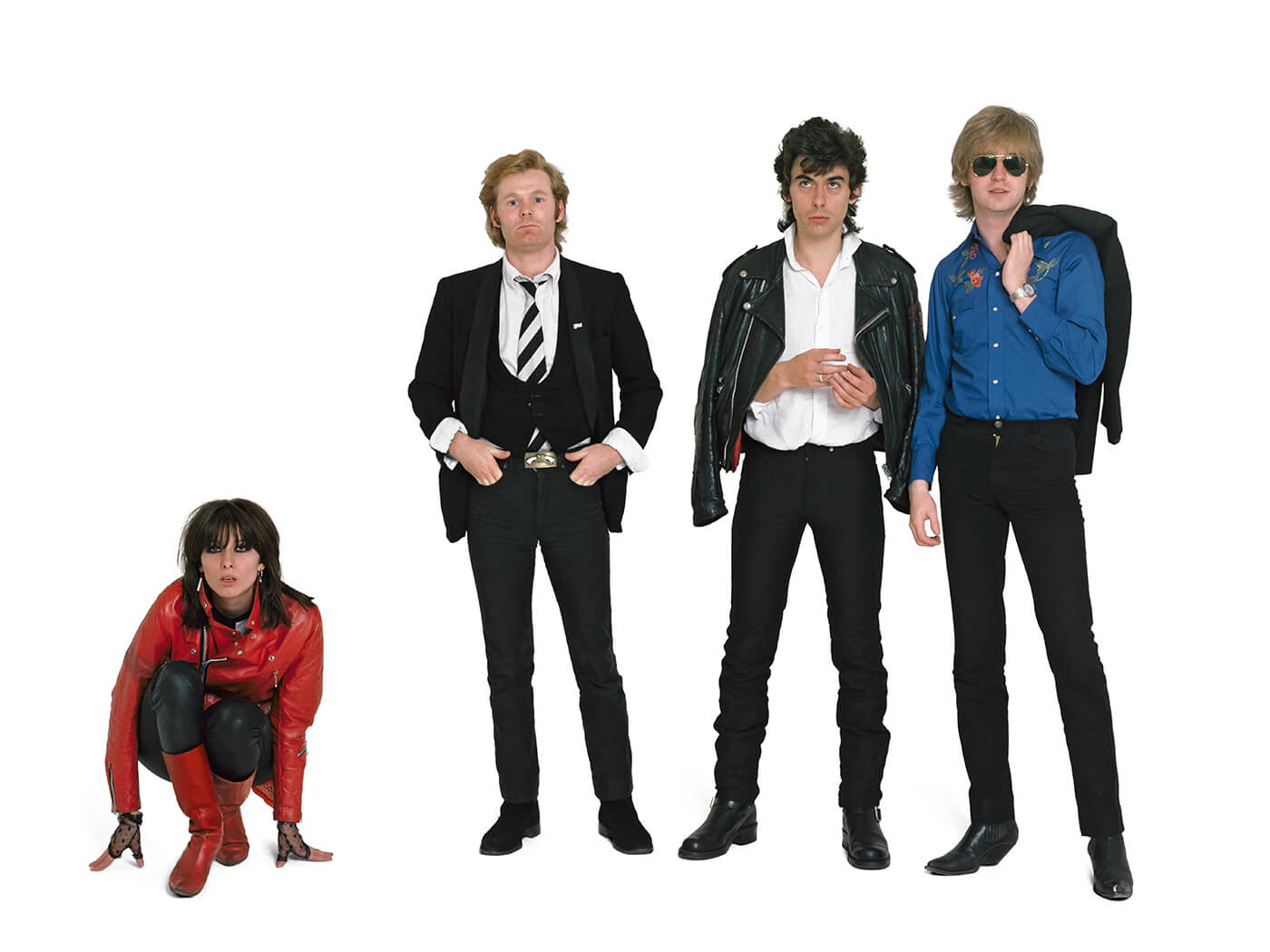In her 2015 memoir, Reckless, Chrissie Hynde described the pre-show ritual in the early days of her band, the Pretenders: the four of them, backstage, waiting, “like dogs at the gate”. As they took to the stage they would play Wagner’s “Ride Of The Valkyries”, then widely known for scoring a pivotal sequence in Apocalypse Now: the sound of helicopters, menace, pursuit. Among the young band members, Hynde said, it encouraged a feeling that they were all “chasing something”.
Listen to the Pretenders’ first two records today, over 40 years since their release, and that coursing urgency is still startling. There are the blazing singles, of course –the cover of The Kinks’ “Stop Your Sobbing” that kickstarted their career in 1979, the spiny guitar and plaintive vocal of “Kid”, the gummy, cocksure twang of “Brass In Pocket”. But these records, you are reminded, are entire bodies of work, rather than mere scaffolding for chart hits: the articulation of a lyrical and musical vision, the manifestation of months of hard work, rehearsing long hours, seven days a week.
As a result, the album tracks are just as striking as their more well-known compatriots; in fact, undimmed by years of radio play, they still hold an unexpected brightness. The intertwining of Hynde’s voice and James Honeyman-Scott’s distinctive “jingle-jangle” guitar (as Johnny Marr once described it) on “The English Roses” manages to sound both familiar and fresh; the prickling reggae, strange incantation and unexpected guitar burst of “Private Life” feels newly provocative.
The albums have been repackaged now, remixed by original producer Chris Thomas, and come accompanied by a clutch of demos, rarities and live performances, many of them previously unreleased; there are photographs and elegant liner notes. The whole shebang has been curated by Hynde herself.
It’s the live performances that prove most affecting, including BBC Sessions on the Kid Jensen show, live shows in Boston, London, Paris, New York and Santa Monica. Hynde is very much to the fore, the famed curl and punch of her voice, the sense of a great rock star apparent simply in her breath and moan and exhalation. But behind her, the weltering force of the band – Martin Chambers’ cantering drums on “Bad Boys Get Spanked” in Santa Monica in 1981, or the musical muscularity and sinewy backing vocals of “Mystery Achievement”, played for a BBC session in 1979, serves as a reminder that the Pretenders began very much as a band, as four young musicians, flung into the wilds of success by a No 1 album.
That period in the Pretenders’ history, that defining lineup, would be short-lived. After these two albums (and an intervening EP), Honeyman-Scott, whose melodic guitar lines so complemented Hynde’s rhythm guitar playing, and who so shaped the sound of the band, died of cardiac arrest caused by cocaine intolerance in 1982. The following year, bassist Pete Farndon overdosed on heroin and drowned in his bathtub.
Revisiting these two records, and their accompaniments, reminds us just how extraordinary this moment was, and what a role the Pretenders played in transforming popular music as the decade tipped into the 1980s: a band sprung from the punk scene of the late ’70s who covered The Kinks, the Kingsmen’s “Louie Louie”, Jackie Wilson’s “Higher And Higher”, but who brought us a vision of what was to come: an uncompromising female lead singer, writing about sex workers, spankers, adulterers, who embraced pop and helped usher in the new era of MTV. Few bands felt so new; few bands had such persuasive momentum.
When Hynde once described the aimlessness of her teenage years in Akron, Ohio, high school, art school, the time she spent travelling, and the early days in London – writing for the NME, working at Malcom McLaren and Vivienne Westwood’s clothing shop SEX, dabbling in punk, eventually forming her own band, with her own songs, she distilled the essence of her approach to life and creativity: “I thought if I kept not doing what I didn’t want to do, I would naturally get closer to what I did want.” Much of the force and allure of Pretenders songs lies precisely in that space, in Hynde’s remarkable ability to articulate and conjure that sensation: the feeling of getting closer to what you want.
There would be wilder success to come after these first two albums, a career that would span four decades, platinum sales, Grammys, the Rock’n’Roll Hall Of Fame. But at this point in the life of the Pretenders, we can hear a band for whom that sensation was arguably at its loudest, its most insistent: the sound of dogs at the gate, chasing something, getting closer.

